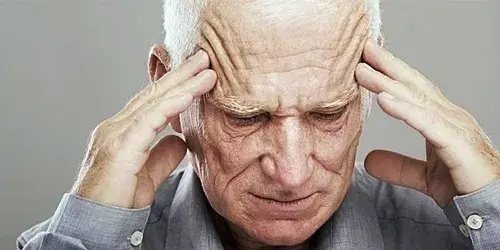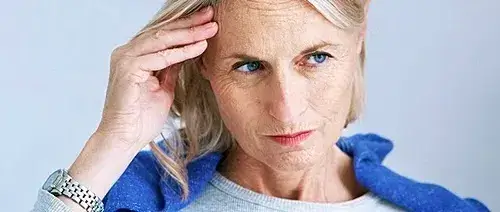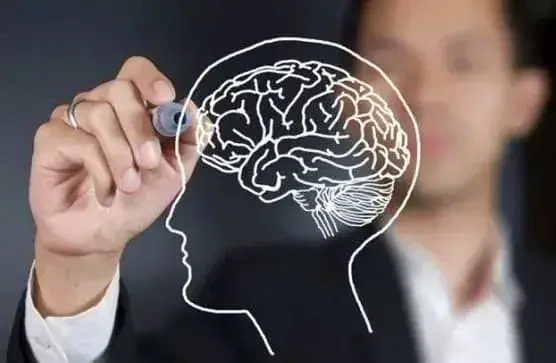Memory loss. A patient comes to the doctor who is unable to say anything coherent about himself because he suffers from memory loss.
It all starts with this puzzling situation in which the doctor is faced with a person who cannot provide any information about himself.
You could say that the patient is like a hiding box in which the key has been lost.
Memory loss and mysticism.
Then the patient’s wife comes to the same doctor, who seems to be putting everything on the shelves.
She starts talking about the patient’s mental state, health problems and even about his favorite dinner recipe.
However, after a while another woman arrives, who also claims to be the patient’s wife.
Does he really have two wives? Is he happy or confused that he has so many wives and they are all his?
The patient does not object to this, because he suffers from memory loss.
Does he even know who his real wife is?
Does he even remember that he has a wife? The situation becomes increasingly strange and exciting as the doctor begins to question his ability to distinguish truth from lies.
Later, a mysterious gentleman arrives, who confuses things even more.
He claims to be the patient’s brother, but at the same time says that he is his father and best friend.
Is this gentleman a real relative of the patient or simply someone who is using the situation to create even more confusion?

Memory loss and utter chaos.
Now, the previously successful, self-confident doctor is no longer sure at all – who is crazy and who is suffering from memory loss.
Has he found himself in some absurd comedy or an attempt to solve puzzles?
Is he just a con artist trying to follow the complicated plot line?
What happens next?
Will the doctor dig into the truth and discover who the real patient is? Does he become even more confused and finally accept that this is his new reality?
Or does he simply hand the patient a spoon and say, “Please take this, it might bring back your memory”?
This is just one of many possible situations that a patient with memory loss and a doctor can find themselves in.
Memory loss.
Is a complex and enigmatic problem that can raise many questions and uncertainties.
It is like a secret door closing, forcing us to look for the key but not knowing where it is.
Although this scenario may seem like fiction, in reality, people with memory loss face similar situations every day.
This is a challenge not only for those suffering from memory loss, but also for the doctors who are trying to help and understand.
Each patient is like a secret to be uncovered, and the doctor is like a detective looking for evidence and solving puzzles.
Therefore, it is important to show understanding and patience to patients with memory loss.
We all have some form of memory loss, whether it’s a forgotten word or a lost key.
So when we encounter someone who can’t remember or say something about themselves, we can show compassion and help them find the key.
Open the door to their memory.
So, whether you’re a doctor or a layperson, when you encounter memory loss in someone else, remember that we are all part of this complex and mysterious world.
We are all trying to uncover the truth and remember who we are.
If anything, while we’re doing it, maybe we’ll discover something new and surprising for ourselves.
The article emphasizes the understanding and patience of patients with memory loss, as well as the role of doctors as detectives who solve puzzles and search for evidence.
Readers are invited to show compassion and help patients find the key that will open the door to their memory.
Memory, could you do it?
That would be an interesting plot for this article, wouldn’t it?
Seriously, this can involve using various therapies, such as music therapy or art therapy, to stimulate memory retrieval.
It can also involve conducting various tests and examinations to determine possible causes and ways to restore the memory.
Doctors are like puzzle solvers who look for various signs and clues to find the key to the door of a patient’s memory.
They can use various techniques, such as memory retrieval exercises, to stimulate the patient’s brain and recover lost memory fragments.
They can also use various memory enhancement techniques, such as memory games, to help patients recall important information.
Ultimately, we can all be a part of this key search.
We can show compassion and understanding to patients with memory loss by providing them with support and helping them recover what they have lost.

We can be the patients’ memory detectives, searching for the missing pieces and helping patients open the door to their past.
So, could you find the key that will open the door to a patient’s memory?
Would you be willing to be a doctor-detective, solving puzzles and searching for evidence?
We can all be memory diviners, helping patients uncover missing pieces and return to them what was theirs.
Good Day!



Memory enhancement techniques, such as memory games, to help patients recall important information